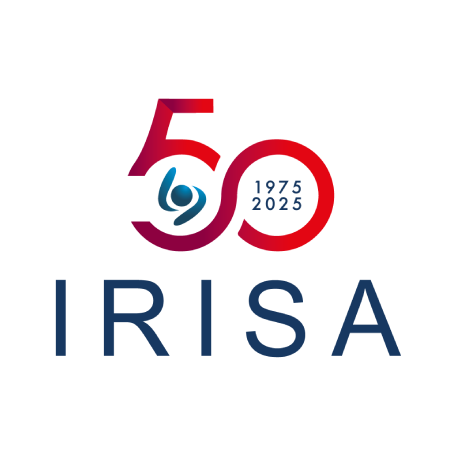La prochaine session du séminaire sécurité des systèmes électroniques embarqués aura lieu le vendredi 21 Juin de 10h à 12h.
Le séminaire aura lieu dans les locaux de l'Inria Rennes, grand amphi.
Le programme de cette session est le suivant :
10h - 12h : Raphael Joud
Titre : Side-Channel Analysis against Confidentiality of Embedded Deep Learning Models
Résumé : The usage of Deep Learning (DL) models on embedded systems keeps getting more and more popular. Their security must be ensured as those models may be required to perform sensitive tasks or handle confidential data. This question is notably brought up in European regulation projects. However, securing DL models is not considered at the design phase and their deployment exposes them to physical attacks in addition to numerous algorithmic attacks that already exist. This talk focuses on confidentiality threats of DL models leveraging on physical attacks, especially side-channel analysis. Characteristics behind model performance are targeted with a fidelity objective, meaning that such a scenario aims to obtain a clone rather than just steal model performance. Studies are divided into three distinct topics. First, we study architecture extraction considering quantized models in a restrictive black-box context. Such evaluations have been made using only basic pattern recognition methods applied to circuit electromagnetic emanations. Then, we focus on parameter extraction from DL models embedded in 32-bit microcontrollers (Cortex-M7). Leveraging on an iterative strategy, we highlight several challenges induced by complete model extraction through side-channel analysis. From these results, we consider some countermeasures aiming at strengthening embedded DL model confidentiality.
11h - 12h : David Lubicz - DGA-MI
Titre : On jitter transfer in Ring Oscillator
Résumé : The “jitter transfer principle” states the statistical equivalence between two designs of oscillator based TRNG. A first design consists in two noisy oscillators a first one sampling the other while the second design is a noisy oscillator sampled by a perfectly stable clock signal. This last design is used in particular in [1] in order to compute the entropy rate produced by the thermal noise whereas the first design is commonly used for the implementations and measures. The jitter transfer principle allows to enjoy the good features of the two designs that is being able to measure the jitter and use a stochastic model to compute the entropy rate. A version of jitter transfer principle can be found in [1] but the given formula to translate the statistical parameters of the phase noise does not cover most practical cases and it does not come with the error bounds necessary to certify the computations. In this presentation, we make a more thorough and effective treatment of the jitter transfer principle and give further applications in particular to the computation of the entropy rate of a multiring oscillator-based TRNG.
[1] Mathieu Baudet, David Lubicz, Julien Micolod, and André Tassiaux. On the Security280 of Oscillator-Based Random Number Generators. Journal of Cryptology, 24(2):398–425
Le séminaire est ouvert à tous en présentiel et en distanciel.
Pour assister au séminaire en présentiel, l'inscription est obligatoire au moins 48h à l'avance pour tous les participants en présentiel auprès de Nadia Derouault <nadia [*] derouault inria [*] fr>. Les participants externes devront se présenter à l'accueil avec une pièce d'identité.
inria [*] fr>. Les participants externes devront se présenter à l'accueil avec une pièce d'identité.
Ci-dessous les informations de connexion à la visioconférence :
------------------------------------------------------------------------------------------------------------------------------
REJOINDRE LA RÉUNION WEBEX
https://inria.webex.com/inria/j.php?MTID=m814aa8b3499fe968eb2c2ce8b9c58…
Numéro de la réunion (code d’accès) : 2741 591 9899
Mot de passe de la réunion : 9UJeu8thXZ2
TAPEZ POUR REJOINDRE LA RÉUNION À PARTIR D’UN PÉRIPHÉRIQUE MOBILE (UNIQUEMENT POUR LES PARTICIPANTS)
+33-1-8514-8835,,27415919899## tel:%2B33-1-8514-8835,,*01*27415919899%23%23*01* France Toll 2
REJOINDRE PAR TÉLÉPHONE
+33-1-8514-8835 France Toll 2
Numéros d'appel internationaux
https://inria.webex.com/inria/globalcallin.php?MTID=mc6f2505fe07897399f…
REJOINDRE À PARTIR D’UN SYSTÈME OU D’UNE APPLICATION VIDÉO
Composer le numéro sip:27415919899 inria [*] webex [*] com
inria [*] webex [*] com
Vous pouvez également composer le 62.109.219.4 et saisir votre numéro de votre réunion.
